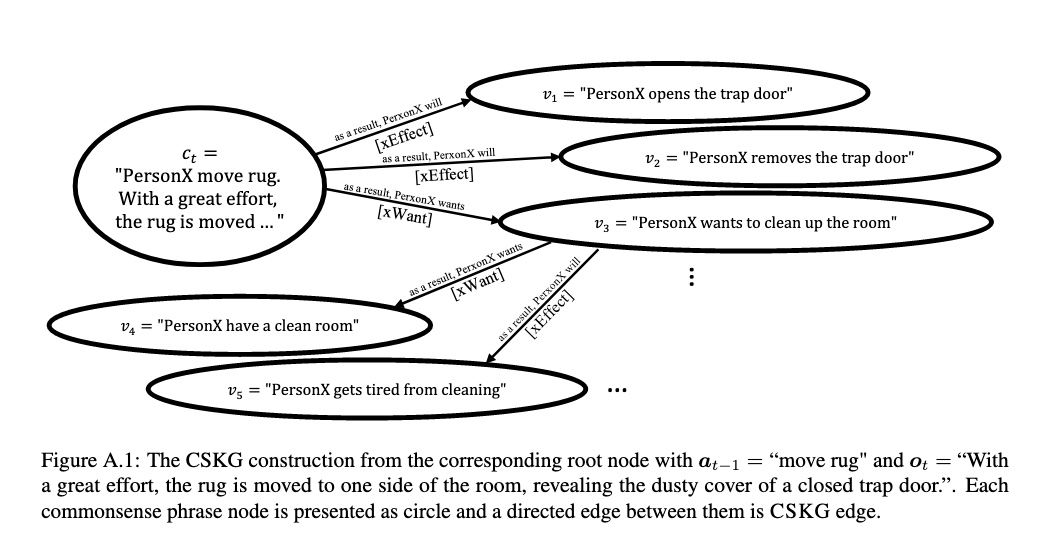[TOC]
- Title: Fire Burns, Sword Cuts: Commonsense Inductive Bias for Exploration in Text Based Games
- Author: Dongwon Kelvin Ryu et. al.
- Publish Year: ACL 2022
- Review Date: Thu, Sep 22, 2022
Summary of paper
Motivation
- Text-based games (TGs) are exciting testbeds for developing deep reinforcement learning techniques due to their partially observed environments and large action space.
- A fundamental challenges in TGs is the efficient exploration of the large action space when the agent has not yet acquired enough knowledge about the environment.
- So, we want to inject external commonsense knowledge into the agent during training when the agent is most uncertain about its next action.
Contribution
- In addition to performance increase, the produced trajectory of actions exhibit lower perplexity, when tested with a pre-trained LM, indicating better closeness to human language.
Some key terms
Exploration efficiency
- existing RL agent are far away from solving TGs due to their combinatorially large action spaces that hinders efficient exploration
Prior work on using commonsense knowledge graph (CSKG)
- prior works with commonsense focused on completing belief knowledge graph (BKG) using pre-defined CSKG or dynamic LM commonsense transformer-generated commonsense inferences.
- Nonetheless, there is no work on explicitly using commonsense as an inductive bias in the context of exploration for TGs
Methodology
Overview
- they proposed commonsense exploration (COMMEXPL) which constructs a CSKG dynamically, using COMET, based on the state of the observations per step.
- Then, the natural language actions are scored with the COMET and agent, to re-rank the policy distributions.
- They refer to this as applying commonsense conditioning

Incomprehension
The author assumed that readers understand what are CSKG (commonsense knowledge graph) and COMeT model, which is not applicable to me.
